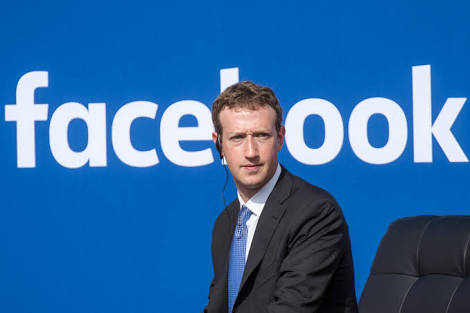Mark Zuckerberg was Midas – the man with the golden touch. Yet, somehow the company and its billionaire CEO find themselves in a turmoil. Almost every week, there’s an incident or controversy which shows the social media giant in negative light. While some have been direct consequences of Facebook’s own actions and there are others where the – deliberate or indeliberate — naivete’ and ignorance of the company has been exposed by others. As a result, we often come across headlines that scream how Facebook was wrong and it had no other choice but to apologise. These include apologizing for rather trivial issues to Zuckerberg’s “heartfelt” post about making mistakes.
1. 2018 : For Inappropriate Content :
A report by The Guardian highlighted how Facebook had been running a survey asking users, “whether paedophiles should be allowed to proposition children for sexual pictures on the site.” It resulted in Facebook admitting their “mistake” how it had “no intention” of allowing such behaviour.
Facebook, said,
“We run surveys to understand how the community thinks about how we set policies. But this kind of activity is and will always be completely unacceptable on FB. We regularly work with authorities if identified. It shouldn’t have been part of this survey. That was a mistake.”
2. 2018 : For Suggesting ‘vulgar’ And ‘bizarre’ Searches :
Several users posted on Twitter how Facebook was suggesting vulgar and obscene searches and that too in multiple languages across the world. Facebook had to issue a statement and apologised for the problem.
In the statement the Facebook company said,
“As soon as we became aware of these offensive predictions we removed them. Facebook search predictions are representative of what people may be searching for on Facebook and are not necessarily reflective of actual content on the platform.”
3. 2018 : For Spamming Users Who Opted For Two-Factor Authentication :
In February 2018, Gabriel Lewis took to Twitter and said how he signed up for Facebook two-factor authentication, and the social network responded by sending him endless text notifications, including the ones he didn’t want. In a blog post, Alex Stamos, Facebook’s Chief Security Officer, said that how it wasn’t intentional but was actually a bug. He further added,
“We are working to ensure that people who sign up for two-factor authentication won’t receive non-security-related notifications from us unless they specifically choose to receive them, and the same will be true for those who signed up in the past. We expect to have the fixes in place in the coming days.”
4. 2018 : For The Shooting VR Game :
Just last month Facebook had posted a demo of its virtual reality game, Bullet Train. The game was about players using an imaginary gun to shoot other players on a train. It was highlighted that the demo was released days after the horrific shooting incident in a Florida school.
5. 2012 : For ‘manipulating’ Users’ News Feed :
In 2012, the social media giant manipulated its News Feed of about 700,000 users. The users had no idea that Facebook reduced the purportedly positive feeds from some users’ friends. What it also did was limited the share of downer posts received by others.
6. 2011 : For ‘sharing’ Users’ Information With Advertisers :
Facebook was huge eight years ago as well but it certainly wasn’t this unstoppable juggernaut it is now. On May 24, 2010, Mark Zuckerberg wrote in The Washington Post,
“Facebook has evolved from a simple dorm-room project to a global social network connecting millions of people.” Zuckerberg was writing in response to how it was alleged that Facebook was sending user information to advertisers without their knowledge.
7. 2007 : For Exposing User Data :
Not many would remember but 11 years ago, Facebook experimented with a new feature called Beacon. The idea behind Beacon – in Zuckerberg’s own words – was,
“When we first thought of Beacon, our goal was to build a simple product to let people share information across sites with their friends.”
8. 2006 : For “Messing up” Of News Feed And Mini Feed :
In 2006 Facebook exposed several users’ private posts to others without them having any idea. It once again prompted an apology from Zuckerberg in an open letter.
He wrote,
“This was a big mistake on our part, and I’m sorry for it. But apologizing isn’t enough. I wanted to make sure we did something about it, and quickly. So we have been coding nonstop for two days to get you better privacy controls.”

Most Recent Comments